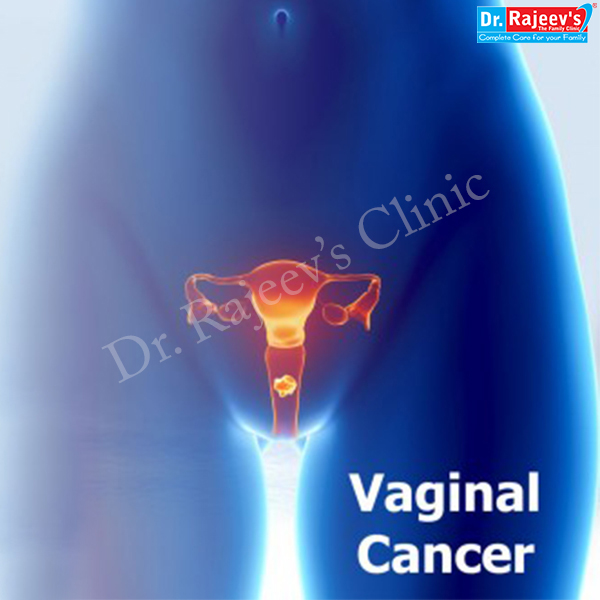

Vaginal cancer is a rare cancer that occurs in your vagina — the muscular tube that connects your uterus with your outer genitals. Vaginal cancer most commonly occurs in the cells that line the surface of your vagina, which is sometimes called the birth canal.
While several types of cancer can spread to your vagina from other places in your body, cancer that begins in your vagina (primary vaginal cancer) is rare.
A diagnosis of early-stage vaginal cancer has the best chance for a cure. Vaginal cancer that spreads beyond the vagina is much more difficult to treat.

Early vaginal cancer may not cause any signs and symptoms. As it progresses, vaginal cancer may cause signs and symptoms such as:
It's not clear what causes vaginal cancer. In general, cancer begins when healthy cells acquire a genetic mutation that turns normal cells into abnormal cells.
Healthy cells grow and multiply at a set rate, eventually dying at a set time. Cancer cells grow and multiply out of control, and they don't die. The accumulating abnormal cells form a mass (tumor).
Cancer cells invade nearby tissues and can break off from an initial tumor to spread elsewhere in the body (metastasize).
Vaginal cancer is divided into different types based on the type of cell where the cancer began. Vaginal cancer types include:
Factors that may increase your risk of vaginal cancer include:
With VAIN, cells in the vagina appear different from normal cells, but not different enough to be considered cancer. A small number of those with VAIN will eventually develop vaginal cancer, though doctors aren't sure what causes some cases to develop into cancer and others to remain benign.
VAIN is frequently caused by the sexually transmitted human papillomavirus (HPV), which can cause cervical, vaginal and vulvar cancers, among others. Vaccines that prevent some types of HPV infection are available.
Other risk factors that have been linked to an increased risk of vaginal cancer include:
Vaginal cancer may spread (metastasize) to distant areas of your body, such as your lungs, liver and bones.
There is no sure way to prevent vaginal cancer. However, you may reduce your risk if you:
HOMOEOPATHIC MEDICINE OF VAGINAL CANCER
Kreosote, Hydrastis, Sepia, Helonias,e.t.c Or As Directed by Physician